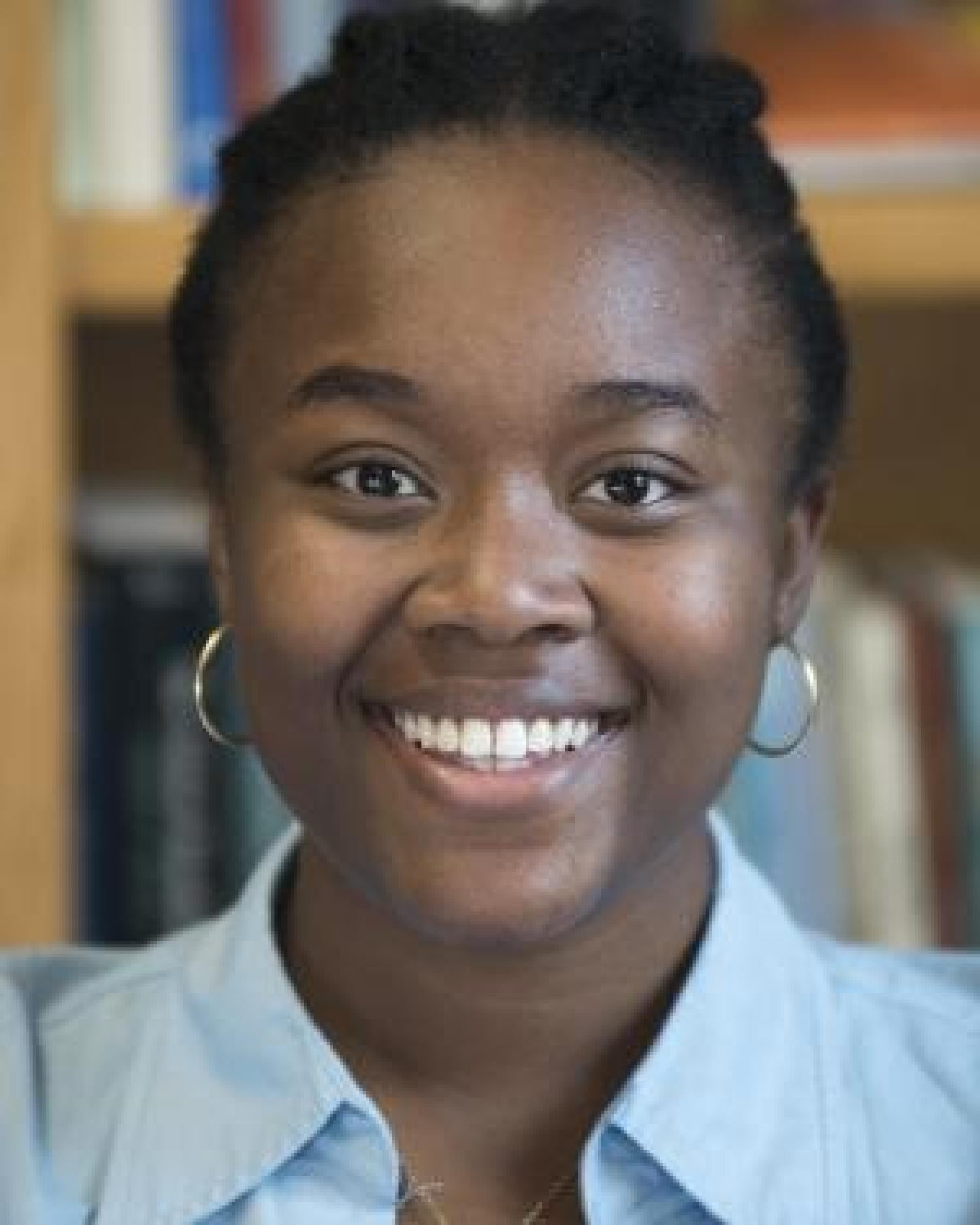Department PhD Students at "Longmont Thinks! Month"

Ájené Robinson-Burris. Photo: Matthias Steup
Ájené Robinson-Burris and Erich Riesen are philosophy PhD students in our department who gave talks at a month-long celebration of philosophy called “Longmont Thinks! Month” in April 2019.
Erich and Ájené answered a few questions about this event:
1) What kind of event is this?
POPCO (the philosophy outreach program of CU’s philosophy department) is teaming up with Grey Havens' community philosophy program. This event is a month-long event that is supposed to get the community of Longmont (and more who come to join) thinking deeply and philosophically. It is run by a group called Grey Havens Philosophy, whose main mission is to bring philosophy to the community. In addition to talks we will be giving, there will be events at museums, art centers, and more with a variety of themes. You can talk about philosophy in Harry Potter, Star Trek, and a lot more!
POPCO aims to spread philosophical ideas and critical thinking skills to high school students around the state. One goal for this year was to extend the program to younger students. Working with Grey Havens is a great way to make that happen because they have a network of interested younger students and parents in and around Longmont.
2) What will you talk about?
Erich: "At my talk, ‘Artificial Intelligence’, we will be discussing the impact of current and future artificial intelligence on our everyday lives, and the ethical implications that come along with this impact. From self-driving cars to a fully automated labor force, emerging cognitive technologies pose many serious ethical and practical issues. For example, how are people going to make money if machines take over large swaths of the labor force? Not everyone can build the machines! And soon, the machines will be building themselves!"
Ájené’s talk is ""Government's Responsibility to Its People”. She says "I am going to be talking about what kind of things the U.S. government owes its citizens. I’m going to go over the founding philosophies of the U.S. and talk about the transition in philosophies over the years. Then I’m going to talk about some recent concerns and complaints in America today about the government and question whether or not those complaints align with the philosophies behind our government today, and whether or not they should.”
3) How does this kind of outreach fit into your own goals as educators and teachers?
Ájené says, "This kind of outreach aligns with my vision to stay involved with community engagement. I believe that I have a responsibility to not only educate at the university level, but to also do my work in the community in order to contribute to community growth. My intellectual interests revolve around justice and liberation, and I think that a key way to achieve both of those things is to have the people you’re surrounded by focus on those topics and think as a community how they would like to achieve them. Basically, I see myself as performing intellectual activism. The more I get out and reach out to the people, the more I have a part in sparking significant grassroots action."
Erich says, "Many students graduating high school in this country (including myself in 2008) have absolutely no concept of philosophy. Those students who have heard of philosophy likely do not understand its connection to critical thinking nor the vital role that critical thinking has to play in assessing scientific, ethical, and political claims. In a country where some still think the Earth is flat and many reject the idea of human-caused climate change, this is a serious problem. POPCO is able to confront this giant problem in a small way by introducing students to philosophy and critical thinking at an early age.'

